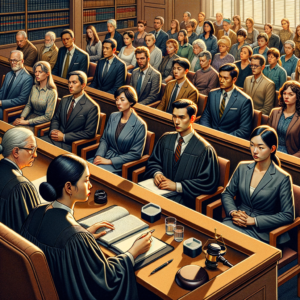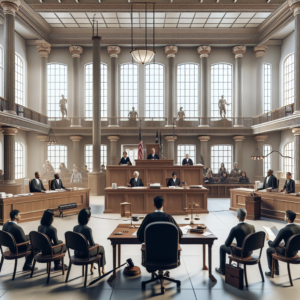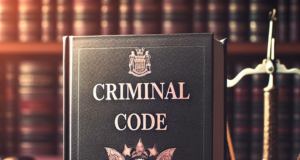Unveiling the Crisis: Shocking Developments in Police Reform Efforts
In recent years, the call for police reform has intensified across the United States, driven by a series of high-profile incidents and growing public awareness of systemic issues within law enforcement agencies. As communities grapple with the implications of these events, the landscape of police reform has become increasingly complex, revealing both progress and setbacks. This article aims to explore the current state of police reform efforts, the factors contributing to the ongoing crisis, and the roles of community activism and legislative responses in shaping a more equitable and effective law enforcement system.
Understanding the Current Landscape of Police Reform: An Overview of Recent Events
The landscape of police reform in the United States has been marked by a series of significant events that have reignited discussions about the role of law enforcement in society. Following the murder of George Floyd in May 2020, protests erupted nationwide, demanding accountability and systemic change within police departments. In response, many cities and states began to implement reforms, including the reallocation of funds, changes to use-of-force policies, and the introduction of community policing initiatives. However, as the initial momentum has waned, the effectiveness and sustainability of these reforms have come under scrutiny, highlighting the need for a comprehensive and long-term approach to police accountability and community safety.
Key Factors Contributing to the Crisis in Police Reform Initiatives Nationwide
Several key factors have contributed to the ongoing crisis in police reform initiatives across the country. First, the deeply entrenched culture within many police departments often prioritizes loyalty and silence over accountability, creating an environment resistant to change. Additionally, the lack of standardized training and oversight across jurisdictions has led to inconsistencies in how laws are enforced and how officers are held accountable for misconduct. Furthermore, the political polarization surrounding law enforcement issues has hindered bipartisan support for meaningful reforms, making it challenging to enact comprehensive legislation that addresses the root causes of systemic issues within policing.
Shocking Developments: Major Incidents That Have Shaken Public Trust in Law Enforcement
Recent incidents have further eroded public trust in law enforcement and underscored the urgent need for reform. High-profile cases, such as the fatal shooting of Breonna Taylor and the violent arrest of Tyre Nichols, have sparked outrage and renewed calls for accountability. These events have not only highlighted the dangers of aggressive policing tactics but have also brought to light the racial disparities that persist within the criminal justice system. The resulting public outcry has prompted renewed scrutiny of police practices and a demand for transparency, leading to increased pressure on lawmakers and law enforcement agencies to take decisive action.
The Role of Community Activism in Shaping Police Reform Efforts and Responses
Community activism has played a pivotal role in shaping the discourse around police reform and pushing for systemic change. Grassroots organizations and coalitions have mobilized communities to advocate for policy changes, engage in dialogue with local law enforcement, and hold officials accountable for their actions. Activists have utilized social media platforms to amplify their messages, educate the public, and organize protests, creating a powerful movement that demands justice and equity. This grassroots engagement has not only raised awareness of police misconduct but has also fostered a sense of community ownership over the reform process, emphasizing the importance of collaboration between law enforcement and the communities they serve.
Legislative Responses: How Governments Are Addressing the Police Reform Crisis
In response to the growing demand for police reform, various levels of government have begun to introduce and enact legislation aimed at addressing systemic issues within law enforcement. Some states have implemented measures such as banning chokeholds, requiring body cameras, and establishing independent review boards to investigate police misconduct. Additionally, federal initiatives, such as the George Floyd Justice in Policing Act, seek to create national standards for policing practices and enhance accountability mechanisms. However, the effectiveness of these legislative efforts remains to be seen, as many reforms face challenges in implementation and enforcement, often requiring sustained political will and community support to achieve meaningful change.
Looking Ahead: Strategies for Effective and Sustainable Police Reform Solutions
As the conversation around police reform continues to evolve, it is essential to adopt strategies that promote effective and sustainable solutions. This includes fostering a culture of accountability within police departments through comprehensive training programs that emphasize de-escalation techniques, bias recognition, and community engagement. Additionally, establishing clear metrics for evaluating the success of reform initiatives can help ensure transparency and accountability. Collaborative efforts between law enforcement agencies, community organizations, and policymakers are crucial for developing tailored solutions that address the unique needs of each community. Ultimately, a commitment to ongoing dialogue and partnership will be essential in creating a more just and equitable policing system.
The crisis in police reform is a multifaceted issue that requires a concerted effort from all stakeholders involved. As communities continue to advocate for change and hold law enforcement accountable, the path forward will depend on the willingness of policymakers, law enforcement agencies, and citizens to engage in meaningful dialogue and collaboration. By addressing the systemic issues that have plagued policing for decades and implementing sustainable reforms, there is potential to rebuild trust and create a law enforcement system that truly serves and protects all members of society. The journey toward effective police reform is ongoing, and it is imperative that we remain vigilant and committed to achieving lasting change.























